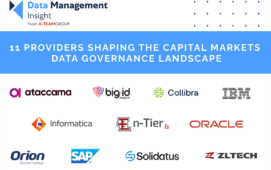Back-office reference data provider Exchange Data International (EDI) has implemented Bloomberg Global Securities Identifiers (BBGIDs) in its equities reference, pricing and corporate actions data feeds. The London-based provider is planning further implementation in its fixed income corporate actions service and forthcoming mortgage-backed securities service.
The company’s decision to adopt Bloomberg’s Open Symbology (BSYM), a free-to-use system for naming global securities that is based on a 12-digit alphanumeric identifier, was made on the basis that it is accessible, has no license fee or restrictions on use, and can be used effectively in the back office to link to front-office systems already using BBGIDs.
Jonathan Bloch, CEO of EDI, says: “Bloomberg Open Symbology advances straight-through-processing of equity orders, which helps reporting and compliance management. Many of our clients want to use Bloomberg code and feedback suggests they could replace some other codes if they use Bloomberg code. Ultimately, the Bloomberg code will replace some expensive, proprietary codes in the market, so we can help our clients while Bloomberg provides a service to the industry.”
EDI’s worldwide corporate actions service including BBGIDs is available immediately. The company’s fixed income corporate actions service, including the identifiers, is about four months away and the mortgage backed securities service – a new service from EDI – including the identifiers will be introduced early next year.
Peter Warms, global head of Bloomberg Open Symbology, says: “Existing identifiers that change due to underlying corporate actions introduce inefficiencies, increase costs and add complexity to the data management process. As BSYM grows in adoption, interoperability across market systems and software using the symbology will improve steadily and reduce operational costs.”
Looking forward, EDI is considering its approach to the 2013 introduction of the global legal entity identifier (LEI). Like most data vendors, however, it remains more poised than productive as the structure of the identifier has yet to be finalised. Bloch’s view is that there will be user resistance to high costs around the LEI and that it will only be useful if its reference data includes hierarchy data and a link to securities to support drill down and risk exposure. He concludes: “We are waiting to see the final documents on the LEI and then we will consider our approach.”
Subscribe to our newsletter





